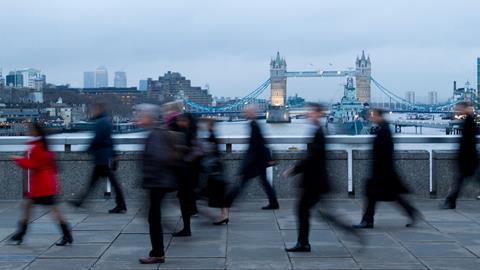Removing juries from complex fraud trials is a ‘red herring’ that risks exposing judges to personal attack and creating added delay, City lawyers have warned.
The City of London Law Society was responding to proposals by retired judge Sir Brian Leveson, for judge-only trials for serious and complex fraud cases along with other measures to help reduce the backlog of cases in the criminal courts.
The society, which represents more than 22,000 lawyers at some of the largest firms in the world, said that the removal of trial by jury for fraud is a ‘red herring’ that will do nothing to resolve the ‘crisis’ in the ‘broken’ criminal justice system.
The response, drafted by the Society’s corporate crime and corruption committee, chaired by Kingsley Napley partner Louise Hodges, warns that the fraud recommendations would have a ‘wide-ranging and long-term (potentially permanent) negative impact’ on the justice system. They ‘risk an absolute and eternal abolition of fundamental rights to ostensibly fix a relatively short-term problem’.
Jury trials have not caused the current crisis, states the committee: over the past five years, only 13 trials resulting from Serious Fraud Office prosecutions. There is no evidence that juries cannot understand complex cases, it argues, stating that juries have ‘been involved in many hundreds of fraud trials, following the evidence and reaching rational decisions.’
Read more
To Leveson’s argument that there will be ‘greater opportunity to scrutinise and hold to account' judges' verdicts, it notes that although the reasoning in a jury room is confidential, the appeal process already gives the defence the opportunity to challenge convictions due to errors by the judge in directing the jury or summing up.
The proposed reforms would require trial judges to produce written judgments, which the committee warns could cause ‘several months’ of delay before a defendant can be advised on any right to appeal. It also warns that written judgments could result in more appeals. Leveson’s recommendations would ‘place a significant amount of new power in the judge’s hands, eroding the constitutional separation of powers and give rise to increased challenges to judicial authority'.
Judges would become directly associated with their verdicts which could make them vulnerable to undue pressure or to personal attack and criticism, the society states, adding to heightened safety fears revealed in the Judicial Attitude Survey.
Judges, it explains, are selected because of their ability to be ‘neutral arbiters of the law’ and, unlike juries, ‘not as representatives of the community’. Implementing the fraud proposals would therefore ‘require a rethink of how to recruit, select, train and support the judiciary’, says the committee, as well as increasing the number of non-sitting hours required to fulfil judges’ additional responsibilities.
To reduce delays, the society recommends streamlining trial processes and extending judges’ management powers, investing in more advanced case management and document review technology, better training for prosecutors and more timely pre-trial disclosure. If the Leveson proposals go ahead, the committee calls for a ‘sunset’ clause and an independent assessment of their impact.
This article is now closed for comment.




























6 Readers' comments